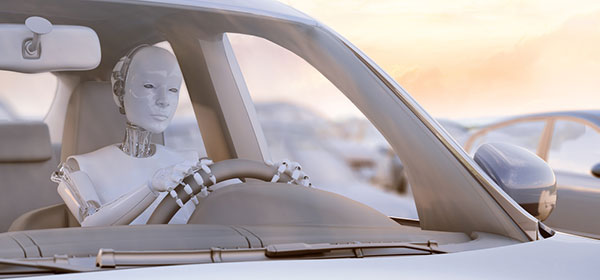We’ve seen rapid changes in car technology over recent years. Cars are being built with increasingly intuitive features, such as cruise control and automated parallel parking. What’s coming next? According to technology researchers and car manufactures; fully automated, self-driving cars.
In 2012, Google X unveiled a fully functioning self-driving concept car, without pedals or a steering wheel. Fast forward to April 2016, and the latest news from Google’s parent, Alphabet, says that the autonomous car is just about ready for mass consumption.
Making a massive technological breakthrough in May this year, a fleet of more than a dozen self-driving trucks travelled from factories in Sweden and southern Germany, arriving in Rotterdam to deliver their goods. These ‘smart’ trucks (which still required a ‘driver’ to be present) were made by six of Europe’s largest manufacturers; DAF, Daimler, Iveco, MAN, Scania and Volvo.
What does all this driverless technology mean for the future of cars? While you might be ambivalent about self-driving cars, artificial-intelligence (AI) researchers believe that they will be safer than today’s human-controlled traffic. The mindset goes that since humans are irrational, their impulsive decision-making increases the chances of accidents on the roads.
Professor Andry Rakotonirainy from Queensland University of Technology says, “We know that in over 90 per cent of cases, crashes are due to human error. Theoretically, if we have a driverless car and the driver is out of the loop, it means less crashes.”
But if cars are intelligent enough to drive themselves, won’t they go power-mad and try to destroy humanity, à la Terminator? In short, no. Or at least, not yet. While AI technology is developing in leaps and bounds, the idea of a singularity (the term used to describe AI that is capable of self-improvement and autonomous decision-making) taking over the world is not necessarily anything to worry about.
AI researchers such as Martin Robbins say that there’s no reason to think that if and when sentient robots begin to ‘live’ among us, they’ll develop the desire to want to control us. Then again, there’s no reason to think they won’t.
“Every time we talk about something like sentients, we immediately start to bring to that word all the baggage that we have from our own experiences of being a sentient creature. You’ve literally no idea in which direction this could go. It might want global conquest or it might be happy trolling chess programmes. There’s no reason to think it’s going to do one thing or the other,” he said.
So, in what form are self-driving cars likely to appear our roads? Before personal automated cars become the mainstream, everyday commuters can probably expect to see the first driverless cars to appear in the form of taxis. Uber is already investing heavily in robotics technology, with an aim to build a fleet of self-driving vehicles.
But what comes after self-driving cars is anyone’s guess.
What do you think of driverless cars on our roads? Would you hop into a driverless taxi today if you had the chance?

